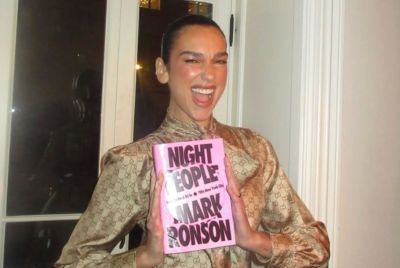From Miss Universe 2025, CMA Awards, To Physical: Asia Winner – Here Are Viral Shows Said To Have Been Rigged

KEY POINTS
- Former Miss Universe judge claims Miss Mexico's win was influenced by business ties with the pageant's new owner.
- 2025 CMA Awards criticised after host Lainey Wilson won several top prizes during the ceremony she fronted.
- Physical: Asia Winner sparks backlash from viewers, pointing to unclear rules, editing choices and possible home advantage.
Three major entertainment platforms—Miss Universe 2025, the 2025 CMA Awards and Netflix's Physical: Asia—have recently faced public accusations of unfair results. The allegations include conflicts of interest, secret judging and unclear competition rules, prompting debates about transparency in global competitions.
The claims span industries, continents and formats, but all share one common thread: audiences are increasingly reluctant to trust outcomes they can't verify.
Miss Universe 2025: Former Judge Calls Miss Mexico a 'Fake Winner'
Fátima Bosch Férnandez of Mexico was recently crowned Miss Universe 2025 in Bangkok. Minutes after her victory, former Miss Universe judge Omar Harfouch claimed her win was business-driven rather than merit-based.
On Instagram, Harfouch wrote that Bosch's father had business dealings with Miss Universe owner Raúl Rocha: 'Miss Mexico is a fake winner... because Miss Universe owner Raúl Rocha is in business with Fatima Bosch's father.'
He further alleged that Rocha urged him to vote for Bosch: 'Raul Rocha and his son urged me... to vote for Fatima Bosch... "because it will be good for our business," they said.'
His accusations came days after several contestants staged a walkout when Thailand's director Nawat Itsaragrisil publicly berated Bosch during a pre-pageant event. Executives were later sent in to take over operations.
The Miss Universe Organisation denied Harfouch's allegations, stating that evaluations follow 'established, transparent, and supervised' protocols.
CMA Awards 2025: Viewers Question Host's Wins
Criticism also erupted in the US after singer Lainey Wilson, who hosted and performed at the show, won multiple top awards at the 2025 Country Music Association Awards. She secured Entertainer of the Year, Female Vocalist of the Year and Album of the Year.
Online commenters suggested it was inappropriate for a host to win so many major awards during the event: 'It was pure awkwardness seeing her host, perform, and clean up... Big conflict of interest.' — @AB_The_Genius
3 hours of my life I cannot get back. What a joke!!
— Dave (@Daveycxr) November 20, 2025
Others called the show 'rigged' due to her dominance:
This was rigged. There is not way that Morgan Wallen didn’t win at least the album and entertainment of the year. LW is good but she is not at his level.
— raygonzalez (@raygonz47050629) November 20, 2025
Just change the name of the show to The Laney Wilson awards show. What has she even done this year? Morgan Wallen has about 10 #1 songs this year. She has one that stupid 4x4 song. Asskisser
— k. ross (@krosstx) November 20, 2025
Wilson addressed critics directly during her acceptance speech, saying those 'trying to pit women against each other' should 'find something better to do.'
The CMA maintains that winners are determined by industry professionals within the association and not influenced by production.
Netflix's 'Physical: Asia' Winner: Viewers Demand Transparency
Netflix's Physical: Asia has faced continued debate over whether the competition was balanced. A long-form analysis posted to Reddit argues that unfair advantage may have been given due to unclear rules, production decisions and possible home-country familiarity.
One highly-shared post argued that audience trust was undermined by inconsistent transparency: 'If the audience doesn't hear the rule until after the challenge, how can we trust that it wasn't added later?'
Another user suggested the results were influenced by home advantage and team makeup, though not explicitly rigged: 'What South Korea had was... a huge national audition process... plus hometown advantage.'
Comment
by u/DominiqueBlackG from discussion
in Physical100
A separate comment referenced South Korea's history with manipulated TV results: 'Korean reality shows have gained notoriety... many turned out true.'
Comment
by u/DominiqueBlackG from discussion
in Physical100
As audiences shift from passive viewing to investigative scrutiny through social media, competition-based programmes are navigating a new era of accountability. Whether accusations arise from poor communication, unclear rules or real conflicts of interest, one expectation is clear: viewers demand transparency.
© Copyright IBTimes 2025. All rights reserved.




















